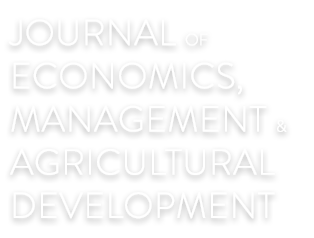Authors
ABSTRACT
One of the basic conditions for sustainable enterprise development is economic efficiency. This study assesses the performance of two agricultural cooperatives in the Philippines – the Sorosoro Ibaba Development Cooperative (SIDC) and the Subasta Integrated Farmers Multipurpose Cooperative (SIFMPC) to shed light on the viability and efficiency of cooperatives as economic enterprises. Descriptive analysis based on the economic efficiency concept under the sustainable enterprise development framework of the International Labour Organization and quantitative analysis using financial indicators are used to assess the performance of the cooperatives under study. Key findings show that cooperatives can perform efficiently if they adopt market-complementing activities such as vertical integration, quality upgrading and productivity and low cost of information. SIDC and SIFMPC have both maintained a good market position and massive participation in the supply chain of hogs and cacao beans, respectively, enabling them to reap greater economic gains. Based on their financial ratios, the two case cooperatives indicated a desirable profitability, liquidity and solvency. The study concludes that cooperatives can indeed be a viable enterprise model providing enabling conditions for attaining economic efficiency. However, adequate resources and investment capacities to support their market-complementing activities must be ensured in order to perform productively, competitively and sustainably. The success of SIDC and SIFMPC is not replicated by many micro and small cooperatives which are often saddled with limited resources and are unable to undertake efficient business operations.

